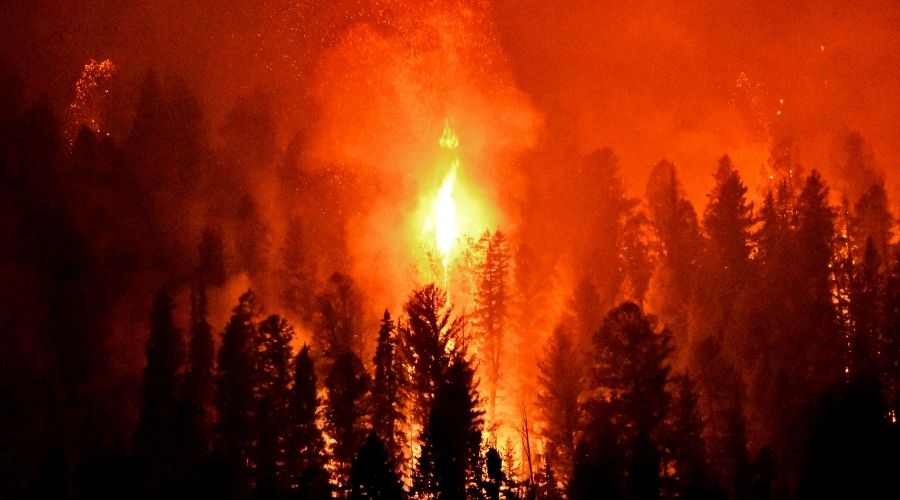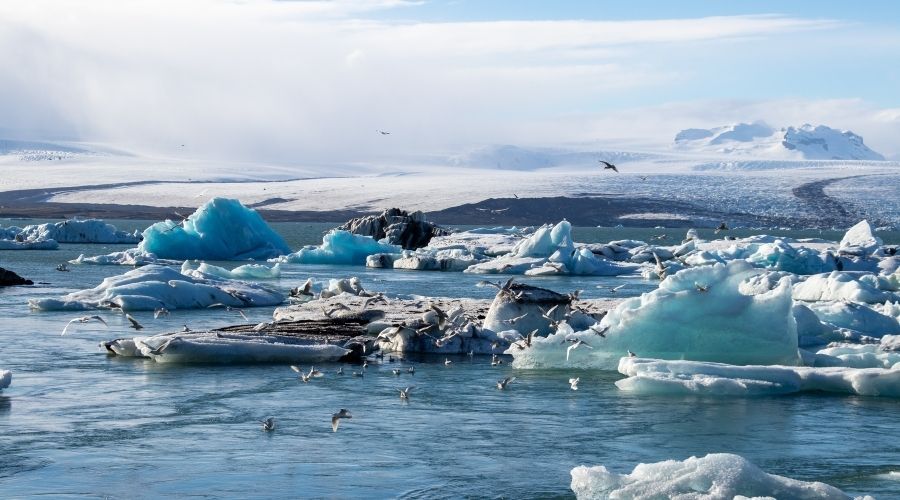
The world has been getting hotter and hotter over the past two centuries due to global warming. As temperatures rise, the Earth’s climatic pattern gets affected.
According to the National Oceanic and Atmospheric Administration (NOAA), the global annual temperature has increased to 3.6 F (2 C).
So what is global warming, what’s causing it, and why should you care? This article explains that and more.
What Is Global Warming and Why Is It a Problem?
Global warming is a gradual increase in the temperature near the Earth’s surface mainly due to the greenhouse effect caused by increased levels of carbon dioxide, Chlorofluorocarbons (CFCs), and other pollutants.
As the temperatures rise, climate changes faster than some living things can adapt to. This unpredictable climate change poses unique challenges to all life. Global warming is also causing Earth’s remaining ice sheets, such as Greenland and Antarctica, to melt. That extra water from the ice sheets raises sea levels significantly and quickly.
Main Causes of Global Warming?
The greenhouse effect is the leading cause of global warming. The more greenhouses gases are released into the atmosphere, the more heat is retained. This eventually leads to global warming. Other causes of global warming include:
- Deforestation: Plants absorb carbon dioxide and release oxygen, thereby cleaning the air. Forests worldwide are being depleted for domestic and commercial purposes. This has led to more carbon dioxide remaining in the atmosphere, leading to global warming.
- Increased use of vehicles: Vehicles burn fossil fuels that emit a large amount of carbon dioxide and other toxins. The more cars we use, the more greenhouse gases are emitted, resulting in raised temperatures.
- Chlorofluorocarbon: Air conditioners and refrigerators release chlorofluorocarbon (CFCs) into the environment, which depletes the atmospheric ozone layer, thereby increasing the temperature of the Earth. The ozone layer protects us from the harmful ultraviolet rays from the sun.
- Agriculture: Chemical fertilizers produce carbon dioxide and methane gas that add to the atmosphere’s greenhouse gases, causing global warming.
- Overpopulation: An increase in population means an increase in human activities that cause the emission of greenhouse gases. Consequently, causing global warming.
- Volcanoes: Volcanic eruptions emit ash and smoke that goes out into the atmosphere and causes global warming.
- Melting permafrost: Permafrost is frozen soil with environmental gases trapped in it for several years and is found where glaciers are present. When permafrost melts, the gases are released back into the atmosphere, increasing the Earth’s temperature.
- Forest fires: The smoke from forest fires contains a large amount of carbon. When released into the atmosphere, the carbon increases the Earth’s temperature resulting in global warming.

Effects of Global Warming?
The effects of global warming continue to rage on. These effects can be felt by humans, animals and the environment.
How Does Global Warming Affect Humans?
Climate change affects agriculture and fishing, which directly affects food safety worldwide. Global warming causes natural calamities such as floods and tsunamis that lead to deaths and the destruction of property, leaving many people homeless. Such events also bring about the spread of diseases that can hamper human life.
High temperatures lead to increased growth of pollen-producing ragweed, higher levels of air pollution, and the spread of conditions favourable to pathogens and mosquitoes. This causes increased cases of allergies, asthma, and infectious disease outbreaks.
Effects of Global Warming on the Environment
Global warming has led to an incredible increase in Earth’s temperature, resulting in an increase in the melting of glaciers. When glaciers melt, the sea level rises, causing devastating effects on coastal regions.

Oceans absorb carbon dioxide from the atmosphere causing their composition to change, and the oceans become more acidic. This ocean acidification cause death and disease to marine flora and fauna.
How Does Global Warming Affect Animals
Climate change causes the loss of habitats of several plants and animals. This causes the animals to migrate from their natural habitat, and many even become extinct. Another significant effect of global warming is the destruction of coral reefs leading to the loss of plant and animal lives.
Consequences of Global Warming if It Continues
The consequences of global warming could be extreme if it goes beyond 1.5°C. Experts believe such high levels of global warming could cause unprecedented climatic events such as more intense storms, floods followed by prolonged and severe droughts, etc. These extreme weather events could be more frequent and have irreversible repercussions on human life, animals, and the environment.
Solutions to Global Warming: What Can We Do To Stop It?
Global warming solutions require us to be mindful of our activities at home, at work, and at the government level. Here’s how to stop global warming.
At an Individual Level
To be a part of the fight against global warming:
- Identify the primary sources of greenhouse gases in your daily life and adapt your lifestyle to minimize carbon impact on the environment.
- Reduce your carbon footprint by conserving energy, buying appliances with the government’s ENERGY STAR® label for energy efficiency, going for cars with the lowest carbon emissions, and taking public transportation or carpooling.
- Offset carbon emissions by financing environmental projects that reduce greenhouse gas emissions and advance toward carbon neutrality.
Society & Government Level
Go beyond your everyday life and support policies fighting global warming and climate change. Petition your representatives to prioritize transitioning from dirty fossil fuels to clean power. You may feel powerless to do this. If so, join movements near you fighting for a similar cause.
Glaciers are melting, sea levels are rising, forests are dying, marine animals are getting extinct, and humans are losing their homes. All due to global warming. Clearly, we are to blame. That also means we can stop global warming if we simply pay attention to our carbon footprints. So let’s play our part and prevent the world from heating up.
You Might Also Like:

![]() Stella - Writer
Stella - Writer
Stella is a writer and mother from Thika, Kenya.
Her love for nature and the beautiful Kenyan outdoors has inspired Stella to consciously make an effort to lead a more sustainable, eco-friendly lifestyle.


